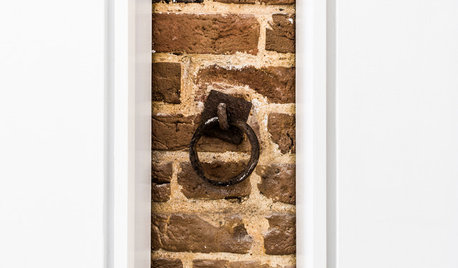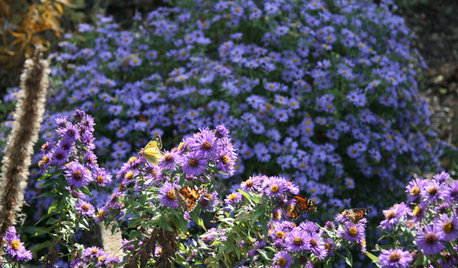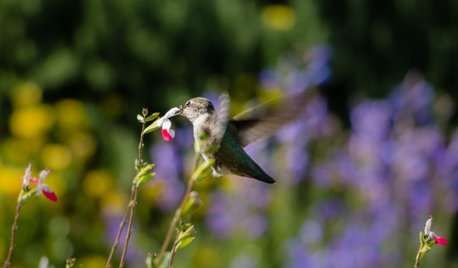Rather than attract them...
sweetgreen
18 years ago
Related Stories

LIFEYou Said It: ‘Rather Than Remove Them, They Framed Them’
Design advice, inspiration and observations that struck a chord this week
Full Story
BENEFICIAL INSECTSAttract Pollinators for a Productive Edible Garden
You can lure bees, butterflies and birds into your yard with the right flowers and nesting spots
Full Story
FLOWERS15 Native Flowers That Attract Butterflies
By picking plants from this list that are right for your location, you’ll get colorful blooms and support pretty pollinators
Full Story
DECORATING GUIDESOpposites Attract: Creating Dynamic Spaces
See How Striking Contrasts Can Charge Up a Room
Full Story
CURB APPEAL7 Great Structures for an Attractive Front Yard
Create a tasteful tableau for all to admire with a fountain, gate, statue or other eye-catcher
Full Story
GARDENING GUIDESAttract Hummingbirds and Bees With These Beautiful Summer Flowers
Roll out a welcome mat for pollinators to keep your landscape in balance and thriving
Full Story
HOW TO PHOTOGRAPH YOUR HOUSEAttract Home Buyers Easily With Great Photography
Show your home's best face in real estate listing photos to have potential buyers knocking down your door
Full Story
PRODUCT PICKSGuest Picks: 20 Uncommonly Attractive Pots and Planters
Cultivate some personality indoors with plant containers that are as unique as the greenery they hold
Full Story
COLOR4 Cool Paint Colors Touted for 2014 — and How to Use Them
Muted but complex, these hues from Farrow & Ball can stand on their own or play supporting roles
Full Story
DECORATING GUIDES7 Major Decorating Mistakes and How to Avoid Them
Gain confidence to start your interior design project with this advice from a professional designer
Full StorySponsored
More Discussions






MKitten
squeeze
Related Professionals
Lyons Landscape Architects & Landscape Designers · Finneytown Landscape Architects & Landscape Designers · Alexandria Landscape Contractors · Billerica Landscape Contractors · Mooresville Landscape Contractors · El Reno Landscape Contractors · Lees Summit Landscape Contractors · Live Oak Landscape Contractors · New Berlin Landscape Contractors · Norristown Landscape Contractors · Salem General Contractors · Jamestown General Contractors · Jefferson Valley-Yorktown General Contractors · Sauk Village General Contractors · Valle Vista General Contractorstrancegemini_wa
sweetgreenOriginal Author
chuckiebtoo
trancegemini_wa
Kelly_Slocum
trancegemini_wa
Kelly_Slocum
sweetgreenOriginal Author
trancegemini_wa
harleysanhooves_aol_com